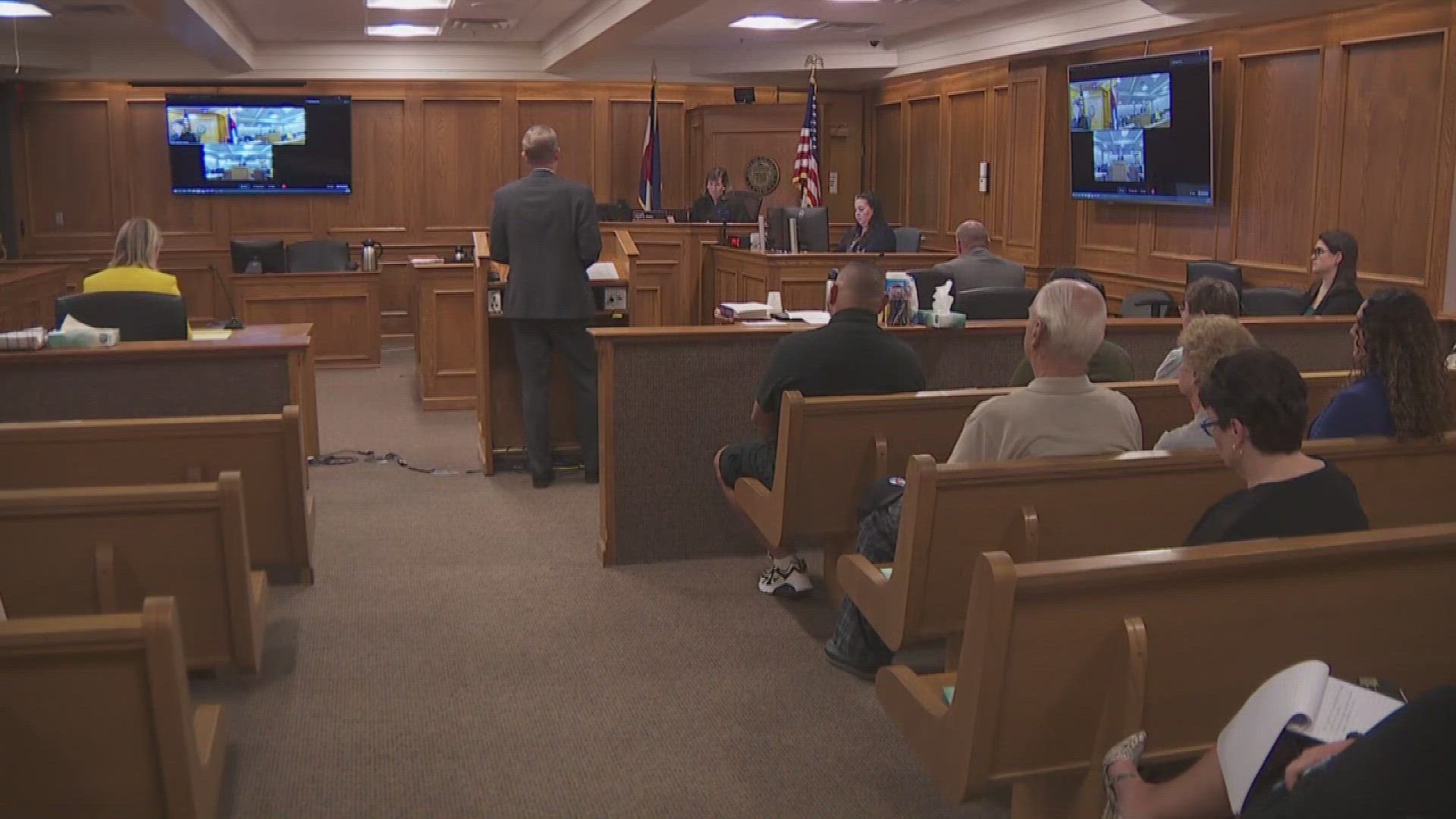BOULDER, Colo. — During a hearing Tuesday afternoon, a Boulder County District judge denied a defense request to have the King Soopers shooting suspect undergo an additional mental health evaluation and said a restoration hearing must take place by Oct. 3.
Ahmad Alissa, 24, faces 115 separate counts – including 10 counts of first-degree murder and 47 counts of attempted first-degree murder – in the March 22, 2021, shootings that took the lives of a Boulder police officer and nine others.
The Colorado Department of Human Services notified prosecutors and defense attorneys on Aug. 18 that an evaluation had found that the suspect is competent to stand trial. That was just before a three-day restoration hearing was set to take place, and Judge Ingrid Bakke cited the timing of the competency finding in her denial of the defense request.
She said both sides should have been prepping for that restoration hearing, and because of that preparation, she felt an additional evaluation was unnecessary.
Bakke had previously given the defense until Wednesday to challenge that evaluation, which zeroed in on a very specific question.
“When we say that someone is competent to stand trial, we're saying, essentially, that they are able to effectively assist their counsel, that they're able to make logical and rational decisions about their trial, that they're able to understand the evidence and understand the charges against them,” said G. Matthews, a defense attorney and former prosecutor.
At its core, a competency finding is not the same as saying the person isn’t experiencing mental health issues.
“Having depression and having other kinds of mental health maladies does not mean that you're not competent to stand trial,” Matthews said.
The man’s attorneys had multiple options:
- They could have accepted the findings of the evaluation.
- They could have sought a hearing and brought in expert witnesses in an effort to have a judge reject the report.
- They could have sought another evaluation.
“If I've reviewed a competency evaluation, and I feel like there were important things that were not discussed, or important things that were left out, or holes or gaps in the evaluation where important, relevant, things that the evaluator needed to understand or know weren't considered, then yes, you often can have a hearing where you can explore if there are, in fact, deficiencies in the evaluation,” Matthews said.
The case was headed for a preliminary hearing in September 2021 when the defense requested a competency hearing. The first evaluation concluded that the man was not competent to proceed, and prosecutors requested a new evaluation.
Treatment, which included “consistent medication compliance,” led to the new evaluation that concluded the suspect is competent to proceed to trial.
Had the defense successfully argued for another evaluation, it could have led to a delay of months – or longer – before it’s known if the case will proceed to a trial.
“These are comprehensive interviews and evaluations by, you know, professionals, so they take a lot of work,” Matthews said. “When you're asking the court to accept that your client is incompetent, you need plenty of evidence, and to make a showing to the court that, in fact, this is not true.
“And so it is something that, definitely, a lot of effort goes into it, a lot of information is compiled, and, you know, careful decisions need to be made.”
The mental health of the suspect will be the focus of a three-day hearing that must take place by Oct. 3. The judge ordered both sides to work together to find dates that worked for them. She also set a preliminary hearing date for Nov. 14; however, that would only happen if the judge concludes that the suspect is competent.
In the meantime, the suspect remains in custody at the state mental hospital in Pueblo.
> Contact 9Wants to Know investigator Kevin Vaughan with tips about this or any story: kevin.vaughan@9news.com or 303-871-1862.
SUGGESTED VIDEOS: Boulder King Soopers shooting

